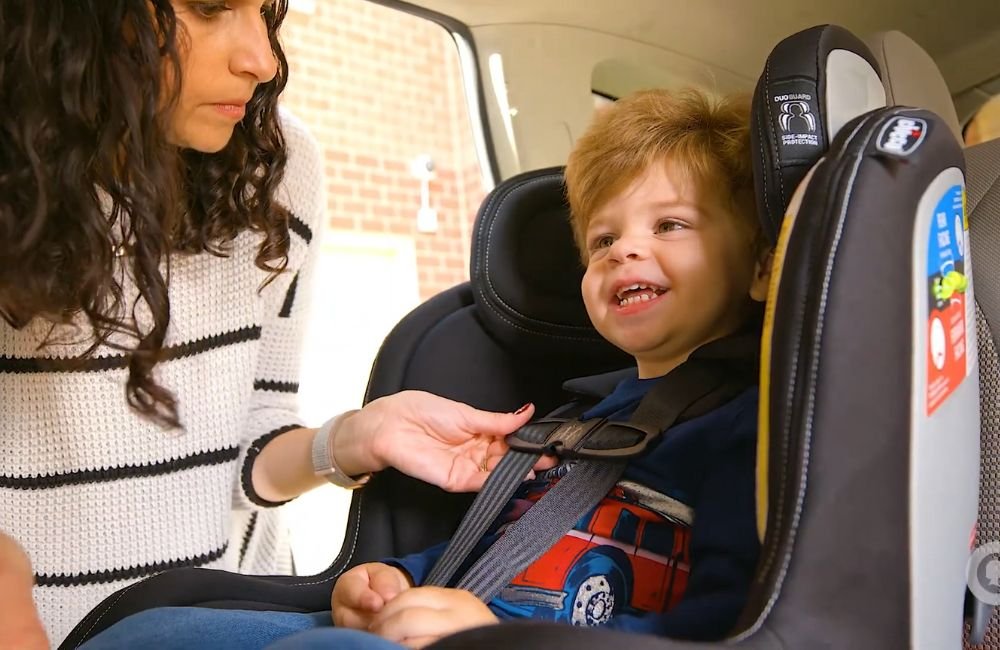As a parent, ensuring your child’s safety is a top priority, especially when it comes to traveling in a vehicle. Understanding and complying with Virginia’s car front seat eligibility is crucial to protect your little one and avoid potential penalties. This comprehensive guide will walk you through everything you need to know about Virginia infant car seat laws, including requirements, safety tips, and frequently asked questions.
What are Virginia Car Seat Laws?

Virginia has specific car seat laws designed to protect children from injuries during car accidents. These laws are based on the age, weight, and height of the child, ensuring that they are safely secured in the appropriate car seat or booster seat.
Virginia Infant Car Seat Requirements
In Virginia, infants must be placed in a rear-facing car seat until they are at least two years old or until they reach the minimum weight and height limits specified by the car seat manufacturer. This is a critical part of ensuring your infant’s safety in the event of a crash, as rear-facing seats provide better support for their head, neck, and spine.
Virginia Child Car Seat Regulations
Once your child outgrows the rear-facing car seat, they can transition to a forward-facing car seat with a harness. Virginia law requires children to remain in a car seat with a harness until they are at least four years old. However, keeping your In-Home Child Care inside or outside in a forward-facing car seat for as long as possible is recommended, based on the manufacturer’s guidelines.
Virginia Booster Seat Regulations
When your child outgrows their forward-facing car seat, they should transition to a booster seat. The booster seat age in Virginia is at least eight years old, unless they reach the minimum height of 4 feet 9 inches (57 inches). The Age and height requirements for booster seats in Virginia ensure that the vehicle’s seat belt fits correctly over the child’s shoulder and lap, providing proper protection.
Virginia Rear-Facing Car Seat Law
VA car seat laws rear facing emphasize the importance of keeping infants and toddlers in rear-facing seats for as long as possible. Rear-facing seats are designed to absorb the impact of a crash, reducing the risk of severe injuries. It is crucial to follow the car seat manufacturer’s guidelines regarding weight and height limits to determine when your child is ready to transition to a forward-facing seat.
Virginia Face Forward Car Seat Law
Here are the requirements for when can a child face forward in a car seat in Virginia:
- Kids have to ride rear-facing at a minimum of 2 years old.
- They can look front only when they are at least 2 years old, or have exceeded the rear-facing seat’s weight or height limit set by the manufacturer.
- Forward-facing car seats must use a five-point harness for added safety.
- Kids should carry on in a rear-facing seat until they get too tall for or too large for that type (according to the manufacturer’s guidelines).
Virginia Car Seat Safety Tips

Following the law is just the beginning. To ensure your child’s safety, here are some additional tips:
- Install the car seat correctly: Ensure the car seat is securely installed using the vehicle’s seat belt or LATCH system. Refer to the car seat’s manual for specific instructions.
- Check the fit: The harness should be snug, with the chest clip positioned at armpit level. There should be no slack in the harness straps.
- Avoid bulky clothing: Remove bulky coats or blankets before strapping your child into the car seat, as they can interfere with the harness’s fit.
- Keep the seat rear-facing: Even if your child is above two years old, keep them in a rear-facing seat for as long as possible, as it provides the best protection.
- Register your car seat with the manufacturer to receive important safety updates and recall information.
Virginia Car Seat Law Penalties
Failure to comply with Virginia’s car seat laws can result in fines and other penalties. First-time offenders may face a fine of $50, while repeat violations can lead to higher fines and potential court appearances. More importantly, non-compliance puts your child at risk of injury in the event of a crash.
Frequently Asked Questions (FAQs)
In Virginia, children must be in a rear-facing car seat until at least two years old, a forward-facing seat until at least four years old, and a booster seat until they are eight years old or 4 feet 9 inches tall.
No, Virginia law requires that all children at least 2 years old must be properly secured in the back seat unless the vehicle does not have a back seat.
If your car seat is involved in a crash, it should be replaced, even if it appears undamaged. The impact could compromise its safety features.
In Virginia, children must be properly restrained in a car seat or booster seat until they reach their 8th birthday.
You can visit a certified car seat inspection station, where trained professionals can check your car seat installation for free. The National Highway Traffic Safety Administration (NHTSA) website provides a list of inspection stations.
Final Thoughts
Understanding and adhering to Virginia’s infant car seat laws is essential for your child’s safety. By following these guidelines, you can ensure your little one is protected during every car ride. Remember, the best car seat is one that fits your child, fits your car, and is used correctly every time.For more information on car seat safety and regulations, check out the Virginia Department of Health and the National Highway Traffic Safety Administration websites.


